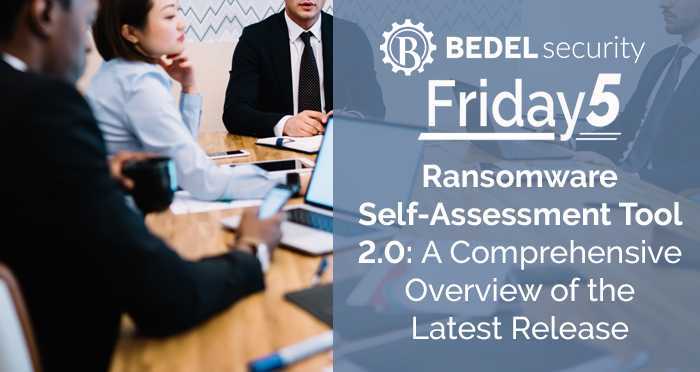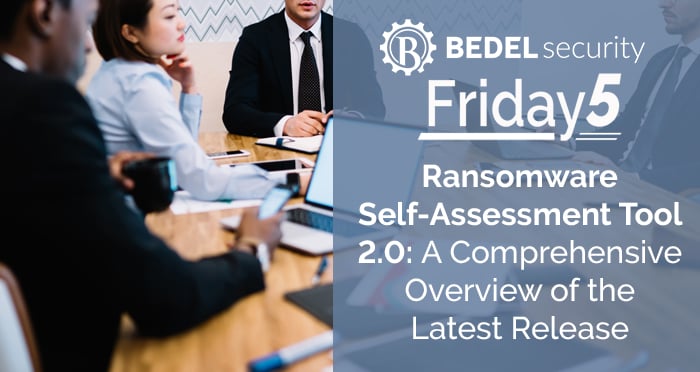CISA’s Cybersecurity Performance Goals: A New Opportunity for Community Financial Institutions
The Cybersecurity and Infrastructure Security Agency (CISA) recently released its Cybersecurity Performance Goals (CPGs) Adoption Report,...
2 min read
Trisha Durkin : Oct 27, 2023


In a digital landscape increasingly plagued by evolving cyber threats and malware attacks, cybersecurity has become a critical concern for financial institutions. Among the various threats, ransomware attacks have surged in frequency and complexity, targeting everything from personal devices to critical infrastructure. In response to this ever-growing menace, the Ransomware Self-Assessment Tool (R-SAT) was initially introduced in October 2020. This week, a new and improved version, RSAT 2.0, has been unveiled. In this blog post, we will take a closer look at the significance of this latest release and explore how it can help users enhance their defenses against ransomware.
R-SAT 2.0 maintains the familiar design and format of its predecessor, Version 1.0, and continues to adhere to the NIST Framework. However, there are several notable enhancements and changes that will need to be addressed.
The updated R-SAT 2.0 significantly augments its focus on MFA. It provides a wider array of options to assess the utilization and robustness of MFA, including distinguishing between application-based and phishing-resistant authentication methods.
A new question has been incorporated to ascertain management's awareness of data storage locations outside of the United States. This includes consideration of any relevant privacy regulations.
R-SAT 2.0 delves deeper into evaluating the frequency of security awareness training, the implementation of phishing testing exercises, and providing employee briefings on emerging ransomware threats.
The section dedicated to preventative controls has been expanded to cover areas such as patch management, the use of removable media, default hardware, and software settings, the implementation of jump boxes or administrative VLANs, and procedures related to resetting or replacing user authentication credentials.
The release of Ransomware Self-Assessment Tool 2.0 marks a significant milestone in the ongoing battle against ransomware attacks. This enhanced version is designed to address the rapidly evolving threat landscape faced by financial institutions on a daily basis. As a result, we can anticipate increased scrutiny from examiners on financial institutions to complete the R-SAT 2.0, with a particular emphasis on addressing any remaining risks identified, especially in the implementation and configuration of robust MFA solutions.
Bedel Security assists financial institutions across the country with managing their Information Security program and completing the R-SAT. If you have questions or would like to learn more about what we do, please contact us at support@bedelsecurity.com to start a conversation.

The Cybersecurity and Infrastructure Security Agency (CISA) recently released its Cybersecurity Performance Goals (CPGs) Adoption Report,...

The Second Amendment to the New York Department of Financial Services (NYDFS) Part 500, finalized on November 1, 2024, introduces more stringent...

In an era dominated by digital advancements, the financial industry stands at the forefront of technological innovation. As financial institutions...